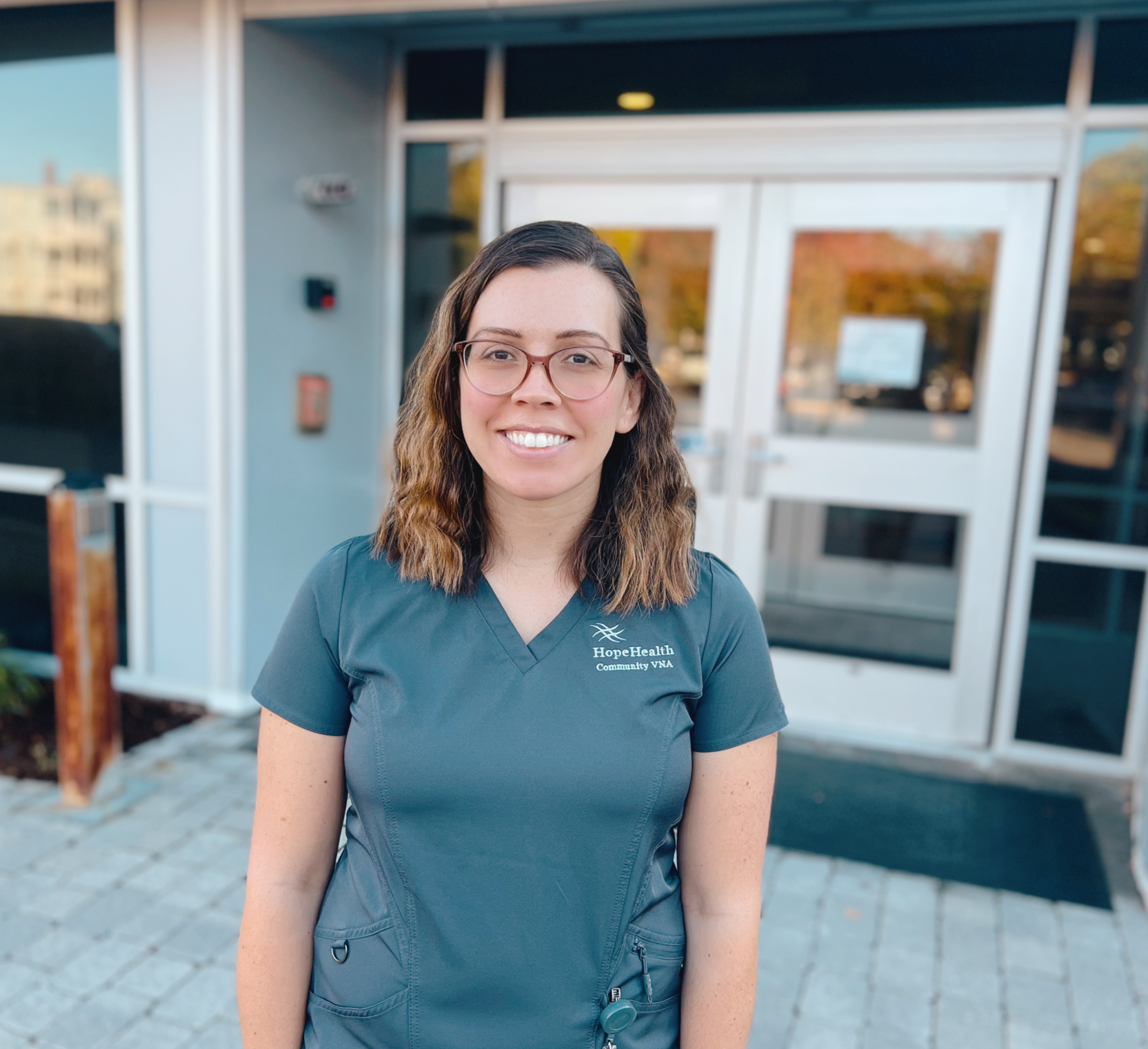When physical therapist Monica Pons meets patients, she often encourages them to think small — in order to think big.
“Maybe they want to drive again,” Monica says. “Well, first we have to stand safely. First we have to do the steps into and out of the house. We’ve got to break down these goals and make them realistic.”
As part of HopeHealth Community VNA, Monica provides at-home physical therapy in Massachusetts, often in coordination with nurses, occupational therapists and other experts. Every day, she helps patients stay safe at home — and, step by step, achieve what’s most important to them.
“Once patients start tackling the smaller goals, they become fulfilled. They’re happier. They’re ready to move onto the next goal,” she says.
In honor of National Physical Therapy Month, here’s a window into this work.
> Ask about home care for you or a loved one
What goes through your mind when you knock on a patient’s door for the first time?
Monica: This is somebody’s mother, this is somebody’s grandfather. Beyond their physical abilities, you’re helping patients get through something challenging that has happened in their life. You’ve got to have empathy and respect.
We connect pretty quickly. A lot of people ask if I have kids, and I do — they’re 1 and 4 years old. People are more comfortable and willing to talk to you when they’re in their own home. They’ll show me around, they’re more motivated to participate. I really like that aspect of home care.
You help with a whole range of physical goals. Can you share a few examples?
When I introduce myself, I explain our main goal is to get you safe within your home — and go from there.
Some patients are active and taking time off for surgery like a knee replacement. They want to get back to their routine, like going to work or to the gym. Their goal may be to get safely into and out of their house so they can go to outpatient physical therapy, and from there back to the YMCA.
On the other hand, I once had a lady who was 102 years old and living alone. Her goal was to stay home safely. I gave her a simple exercise program that she can do within her 500-square-foot apartment, recommended equipment, and educated her family about what she needs to do. Part of her program is getting up and walking a lap around the kitchen every two hours. Her goal is different than someone that’s a little younger.
> Related: 5 ways physical therapy empowers patients
Physical therapists tend to be super adaptable and resourceful. How does that fit in with home care?
I started my career in acute care and skilled nursing. In a hospital, everything is very fixed and perfect. When you bring a patient into a rehab room, everything’s the right height. In their home, it’s not. Maybe they don’t have arm rests, they don’t have railings. And they may not be able to change that — they may not have the funds to get a railing or a ramp or a certain fixture. It is what it is.
I enjoy working with someone within their own environment and getting them used to being safe, whatever that means to them. If they can’t put in a railing, we need to figure out how to get them into and out of the house without it.
> Related: On the road with a home care physical therapist
What’s an example of a patient that’s really stuck with you?
I helped a young guy who had a terrible motorcycle accident and needed a right below-knee amputation. It was a long road ahead for him. He was at times very emotional during sessions because of everything that had happened. He was very grateful for us coming in.
I was there for the healing of his wound, prosthetic leg training, walking with a cane. When he was discharged from home care, he was walking on a cane and going to outpatient therapy.
He recently sent me pictures of himself standing without a cane. He was so happy. That will definitely stay with me.
Questions about home care for you or a loved one? Contact HopeHealth Community VNA at (508) 222-0118 for services in Massachusetts, or email us at Information@HopeHealthCo.org.

